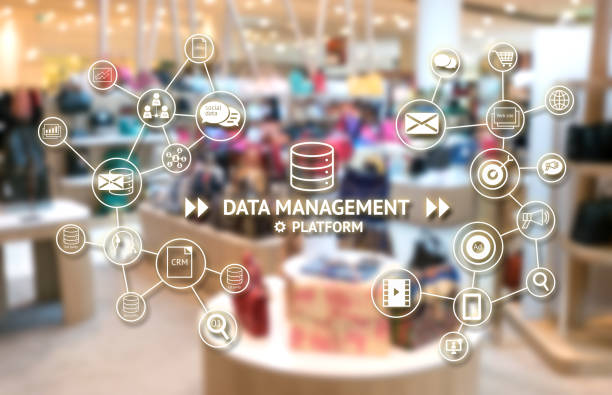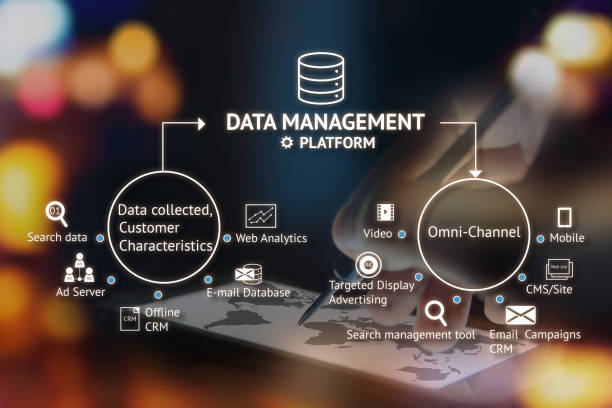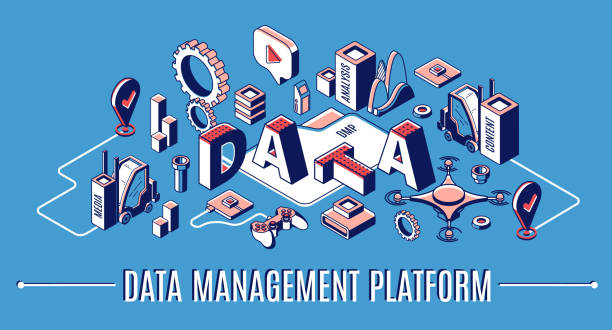What Is DMP in Digital Marketing? DMP is a marketing software that helps marketers understand their customers and segment them based on demographics, interests, and behaviors. A DMP can provide insights to improve customer relationships and ultimately increase sales.
The key to creating a successful DMP is understanding how to use your data. DMP can help you gather a detailed view of your customers and target them with ads and other content that appeals to their interests. A DMP collects first-party and third-party data from a variety of sources, including e-mails, social media posts, and other information.
Then, it will be used to create audience segments that allow marketers to create highly targeted campaigns
For example, a beauty product advertiser may want to target male users of a certain age group. A DMP will help advertisers make the most targeted ads possible for these audiences.
A DMP will store any type of information, including demographics, interests, and behavior. Most commonly, marketers use a DMP to create audience segments and then target their ads to these specific groups. Advertisers purchase media on a variety of sites and through various middlemen.
A DMP will tie this data together and make it easier to optimize future media buys and ad creative
DMP can help you determine the best way to target your audience and create hyper-targeted campaigns. A DMP helps advertisers build audience segments and analyze them. A DMP makes it easier to identify the most profitable audience segments.
It also allows users to create look-alike segments, which are virtual twins of their most profitable customers. These look-alike segments are then licensed to a DSP for further use in marketing. A DMP can provide valuable insights about your audience and improve your marketing strategy. It is one of the most effective ways to target customers.
A DMP can be used to identify your audience on a deeper level
By analyzing audience data, you can target your audience and build effective RFP responses. This kind of information can be used to grow your audience and target your ads. A DMP will help you make the most of your ad campaigns.
It will provide you with the best possible data to determine what content to use for each campaign. A DMP will also provide you with the right target market segments for your advertising.
A DMP helps you manage all of your data and improve your online campaigns
It can integrate data from different sources and use Machine Learning algorithms to analyze the data. It can be used to target users based on their interests or demographics. A DMP will also provide the right kind of ads to match with the right audience.
There are numerous benefits of a DMP in Digital Marketing. The first is that it allows you to customize ads and target them according to their preferences. A DMP is an essential part of your marketing strategy. It is an essential component to get the most out of your online campaigns.
The right audience segment will make your campaigns more successful and profitable
By analyzing this data, you can better understand what your audience wants and how to reach them. This is where DMPs come into play. They can analyze your data and provide the insights that you need. They can help you reach out to your customers and improve the way you market to them.
A DMP helps you understand your audience. You can use this information to create better RFP responses, increase your audience and target your content.

What Is DMP in Digital Marketing?
The DMP also helps you improve ROI
By using this technology, you can create an effective advertising campaign that targets your target audience. And the DMP will help you keep your customers engaged and coming back. With an effective DMP, you can improve your conversion rates and reach out to your prospects.
DMPs are a valuable tool for businesses. With the use of a DMP, you can create highly personalized ads and attract more media buyers.
They also help you identify your customers’ interests and preferences
The DMP will give you the ability to target your campaigns to your target customers’ specific needs. The DMP also enables you to find new ways to improve your audience’s experience. Moreover, the DMP can give you the power to tailor your ads to specific users.
How DMP Works
The data management platform is a centralized hub for analyzing cross-device media and behavior interests. It collects data from online and offline sources and organizes it into segments based on the organization’s hierarchy or business model.
Once the information is gathered, it can be used to create better targeting and segmentation practices. Let’s look at an example. A fictitious auto company, Luxe Trux, wants to engage men over 40, who like performance vehicles. Their DMP collects the customer’s first-party data from the website and connects it to the CRM system.
The DMP shows Terry a display ad for a new-model white SUV
A DMP uses a single database for all the data from one or more accounts. It then passes the data to other services, including DSPs and SSPs. It then uses this data to create effective RFP responses and extend the reach of its audience.
It also helps advertisers meet their campaign commitments. Once a DMP is installed, users can start sending and receiving messages over the network using the DMP API.
When DMP is used, it can help you better understand your audience and tailor your content to suit their interests
It helps you improve your marketing strategy by helping you identify new audience segments and automate your campaigns. It is a highly useful tool for advertisers and can save them a lot of time and money. The data from a DMP can help you improve your content, target audiences, and increase conversions.
DMP is a powerful tool for marketers to segment their audience. It collects data from various sources and analyzes it, enabling you to continually optimize your campaigns . Using the data from the DMP, you can also create personalized audience profiles.

What Is DMP in Digital Marketing?
Once you have this information, you can then use the information to build targeted campaigns and make more informed decisions about your audience
The best thing about a DMP is that it is extremely easy to use and can be set up in a matter of minutes. The data collected on a DMP can help you segment your audience. Firstly, you need to create a budget for your budget. Then, you can identify the essential expenses and eliminate the expenses that don’t matter.
Next, you can make a list of your spare cash. In this way, you’ll be able to make the necessary monthly payments. It can also help you better target users and customers in your target markets.
A DMP is an effective tool for targeting consumers
The data collected, marketers can better understand their audience and tailor their content to fit their needs. Using the data collected, a DMP can also provide valuable insights to their audience. Having this information, you can customize your campaigns and tailor your advertisements to your specific target audiences.
You will be able to target your audience and deliver them content that will best meet their needs. The DMP is built to abstract the AMQP architecture. Its objective is to link client applications with a server application. The feed is the database of the data.
The sink is the server-held queue
The feed is the user’s data. The DMP allows you to target your audience based on this information. Its interface is designed to be user-friendly and intuitive. A DMP is allow you to make the most of the data you collect.
It is designed to collect data from a variety of sources. It will allow you to create user segments based on their behavior and spend more on those that respond best to your ads. In addition, the DMP can analyze the data and provide recommendations that are tailored to your audience.
This makes it possible for you to develop successful campaigns based on a comprehensive view of your audience
It is not just about the type of data you collect; it will also give you a clearer idea of your audience’s demographics. A DMP works by collecting data from third-party sources and combining it with your own data. These data are then shared with other marketing systems and used for targeted advertising.
By combining this information, DMPs help brands make effective RFP responses. By leveraging the data from third-party sources. For Homepage click here

